To match the color of the walls
If you have already done the renovation and are finishing with textile design, rely on the color of the surrounding space – in particular, the walls. Use the 60-30-10 color scheme, where 60% will be the main shade, 30% – the additional shade, and 10% – the accent shade.
The curtains should not be the same color as the walls, unless you are aiming to create an “enveloping” interior. A winning solution is to buy fabric a tone or two darker / lighter than the wall covering.
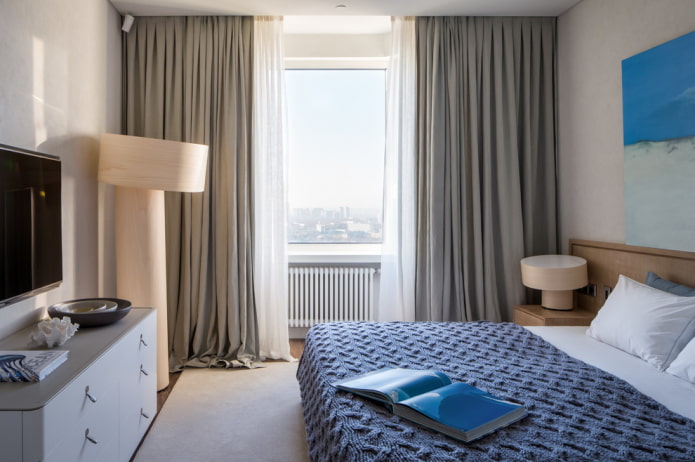
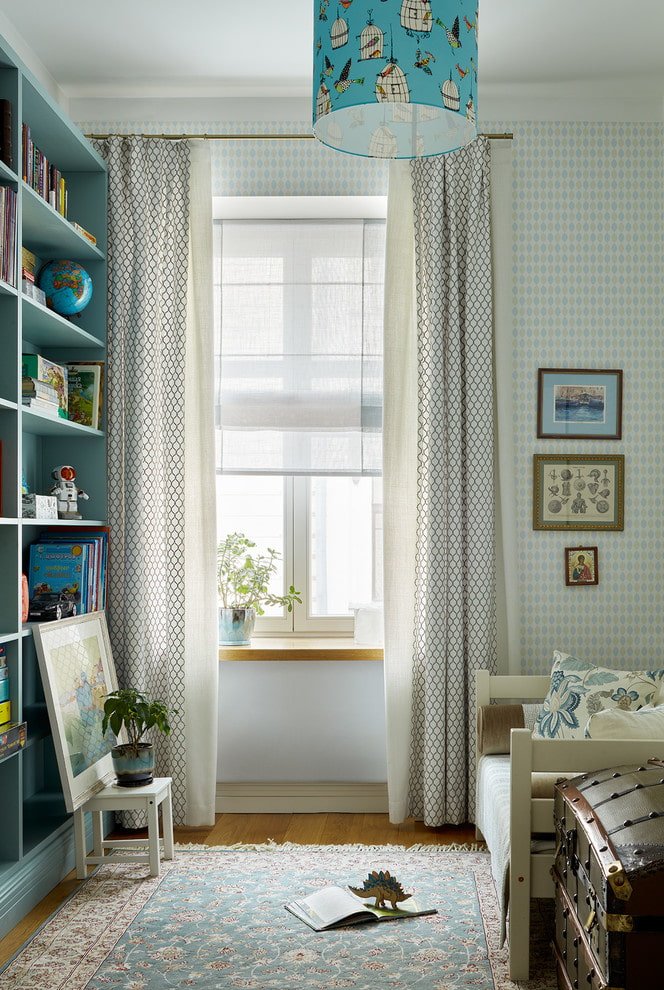
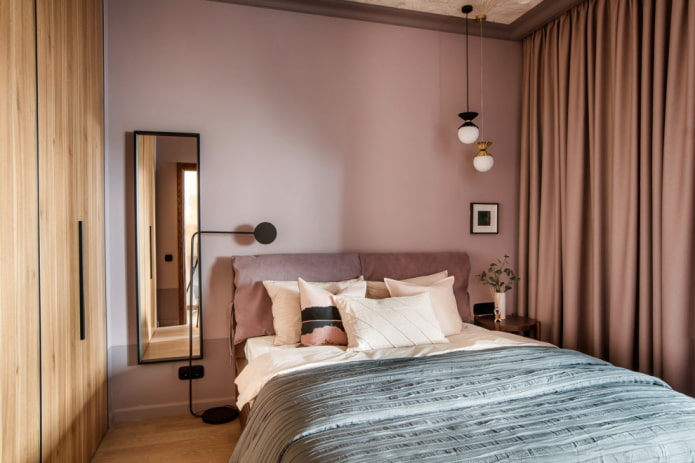
In harmony with the decoration
If the previous advice seems boring to you, focus on the texture of the facing material. In a room with terracotta brickwork, it is difficult to go wrong with the color of the curtains: plain emerald, burgundy and beige items will do. Also, all basic colors look great against the brick background – white, gray, black.
Snow-white organza perfectly softens the brutality of stone, brick and wood finishes.
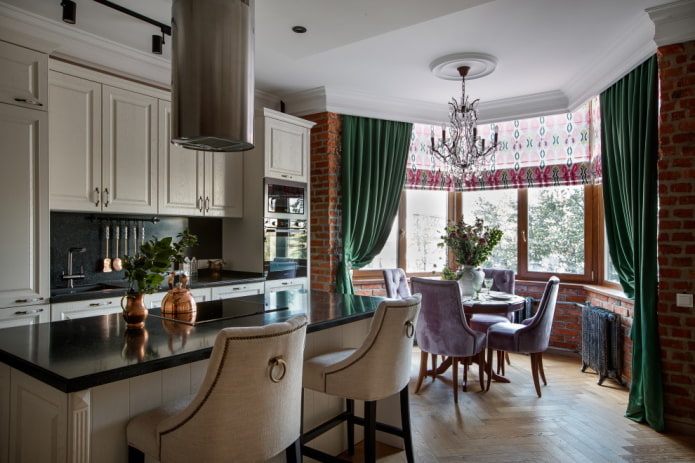
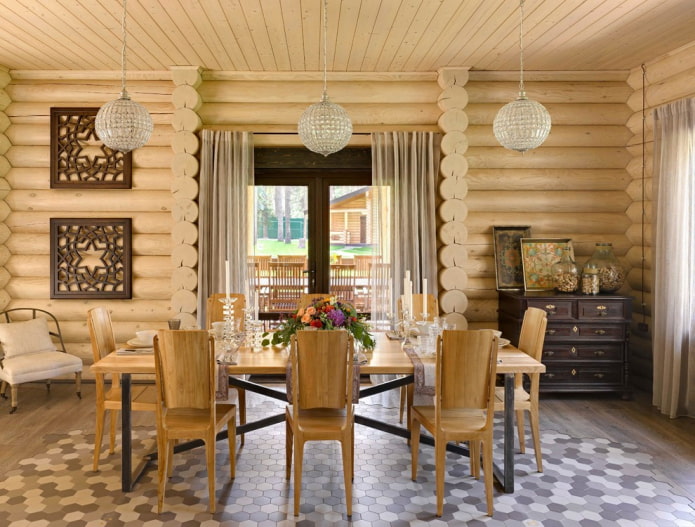
Under textiles
Combine curtains with sofa cushions – you can sew them from the same fabric as the curtains, diluting them with decorative pillowcases of a different shade and textures.
Curtains can be in harmony with the bedspread, but complete matching of shade and print should be avoided: let the motifs or patterns overlap, creating the illusion of identity. Otherwise, the room risks acquiring a “stamped” look.
Put a blanket on the bed or sofa that repeats one or more shades in the pattern – against the background of walls and furniture in a neutral palette, this is the most economical and effective option, because the blanket and curtains can be changed more often than the color of the walls.
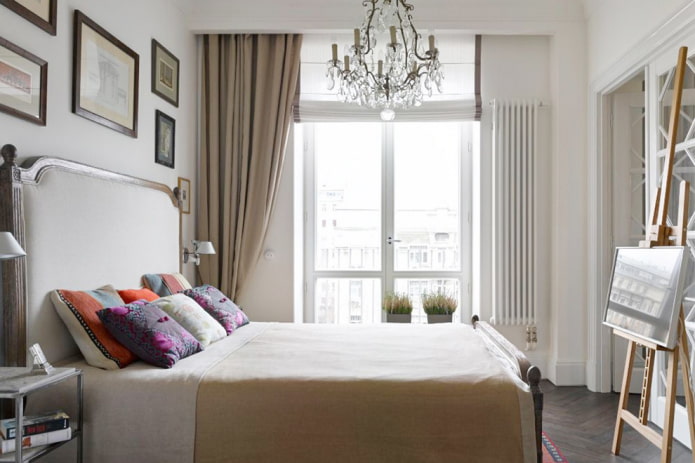
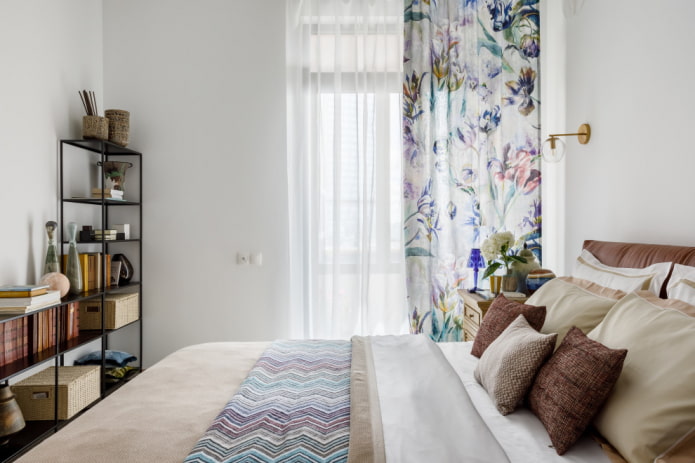
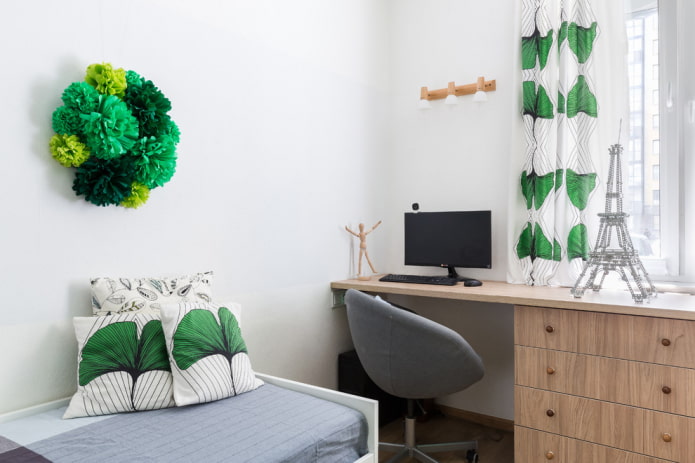
Based on the Amount of Light
When decorating a room, pay attention to how much time the sun spends there:
- If your goal is to make a gloomy dark room lighter, use white colors. They look great in Scandinavian style.
- If you want to add warmth to the decor, hang beige, yellow or orange curtains.
- Too much sun? “Cool down” the interior with light blue, blue or mint curtains.
- If you can’t get enough sleep because of the morning rays hitting the windows or the glow of a street lamp at night, then your option is dark blackout curtains that block out bright light.
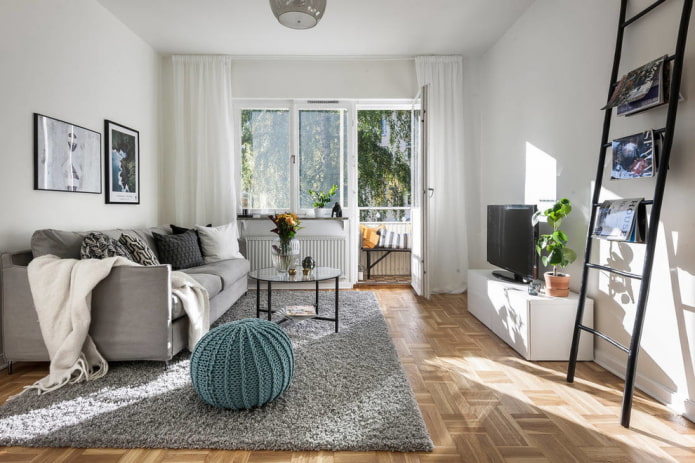
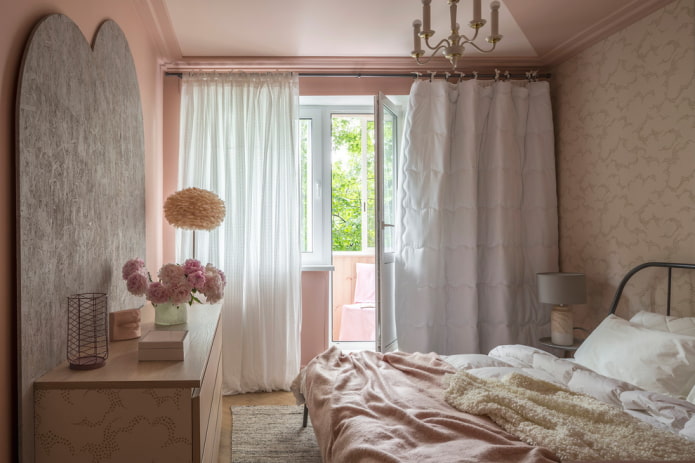
Under beige wallpaper
The most popular wall color is standard beige – it is an excellent background for all natural shades: muted green, gray, milky. Choose a beige-brown range if you don’t want to make a mistake when creating a calm, homey interior.
If your room has a piece of furniture that contrasts with the walls (a carpet, a lamp, an armchair), hang curtains to match it. This strategy works if the walls don’t have a pronounced pattern.
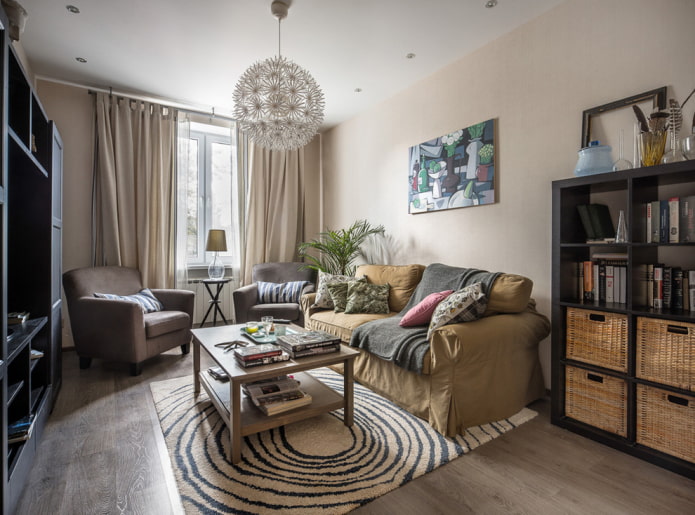
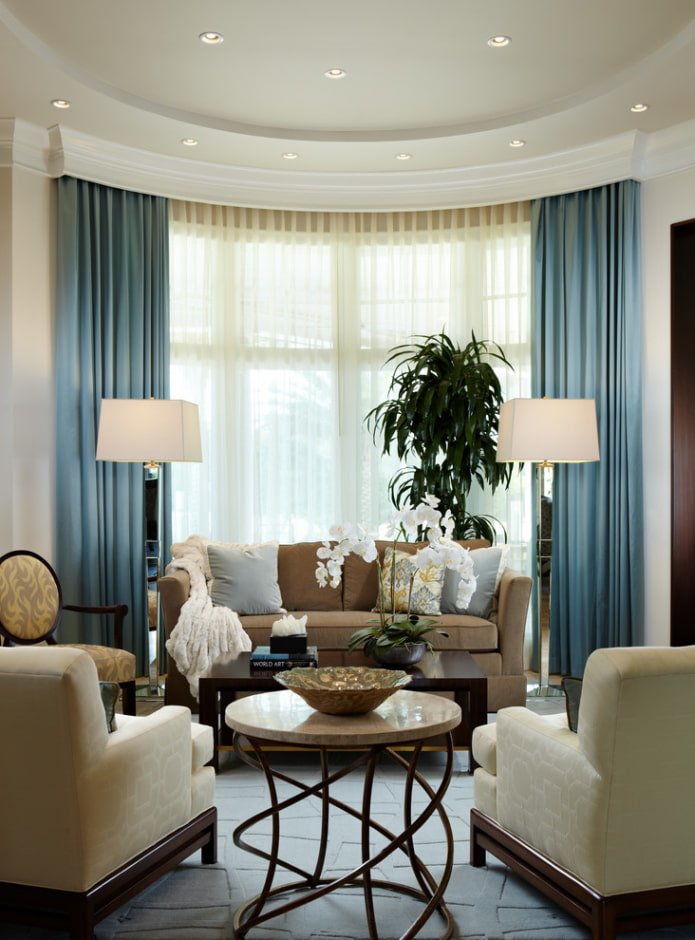
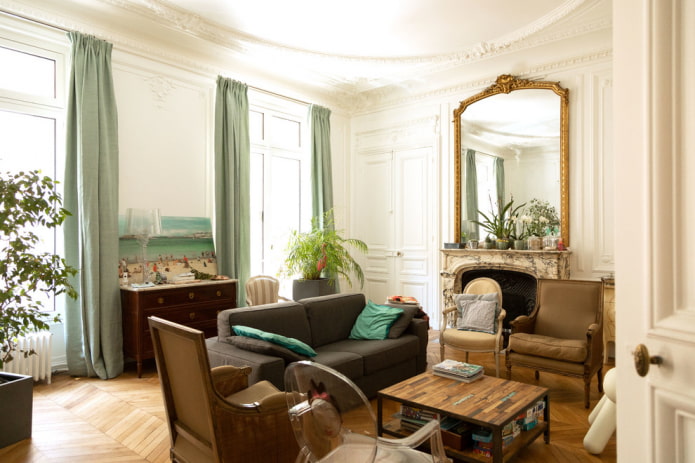
To match decorative details
In a room with photo wallpaper, focus on their an auxiliary color, not the main one. That is, if a large-scale drawing is made in gray tones, but has elements of pink, choose pink curtains a couple of shades darker or lighter.
If the room is decorated with a painting, painted plates, an unusual lamp – let the curtains support this detail. This way you can combine items into a single composition.
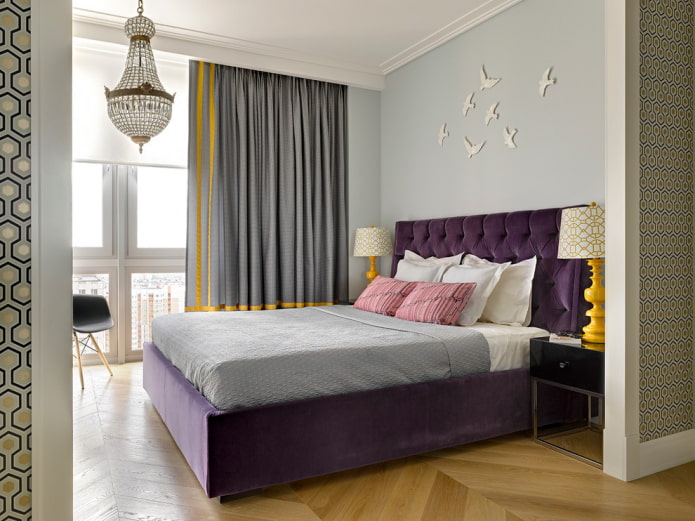
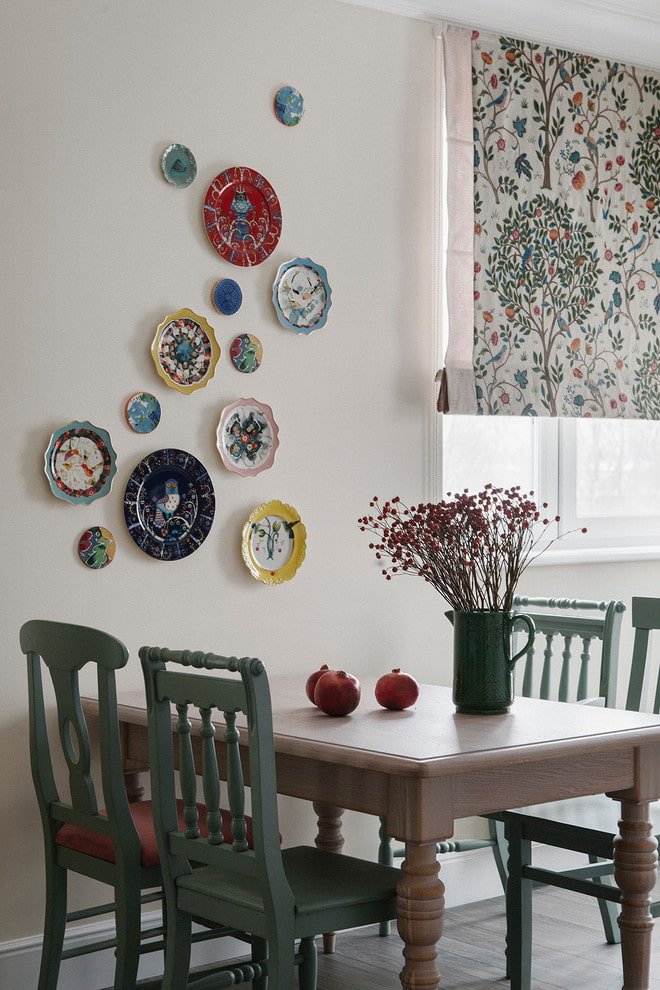
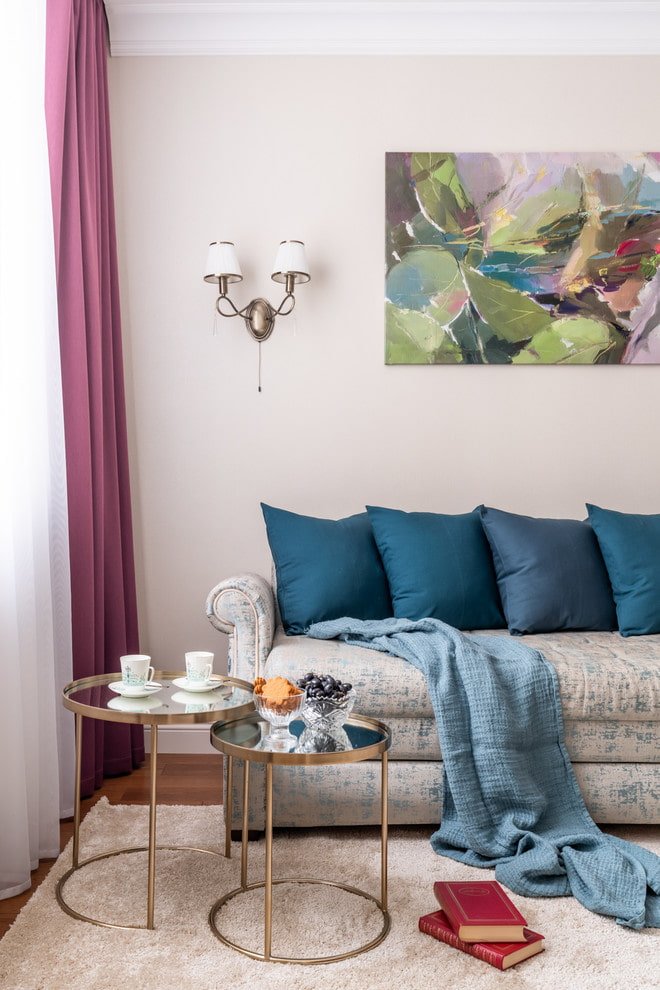
Combining with furniture
This is one of the classic combinations, but some rules are still worth following:
- If there is a lot of upholstered furniture, choose a discreet upholstery pattern and shade of curtains so as not to overload the decor.
- Combine curtains with a couple of items, not all the upholstered furniture.
- Let the coloring echo the wooden structures – a wardrobe, a wall unit, a chest of drawers. This will help to tone down the palette if there are bright accents in the decor.
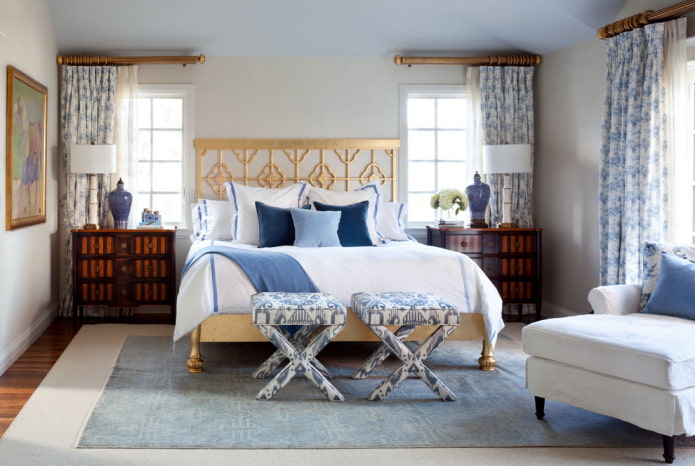
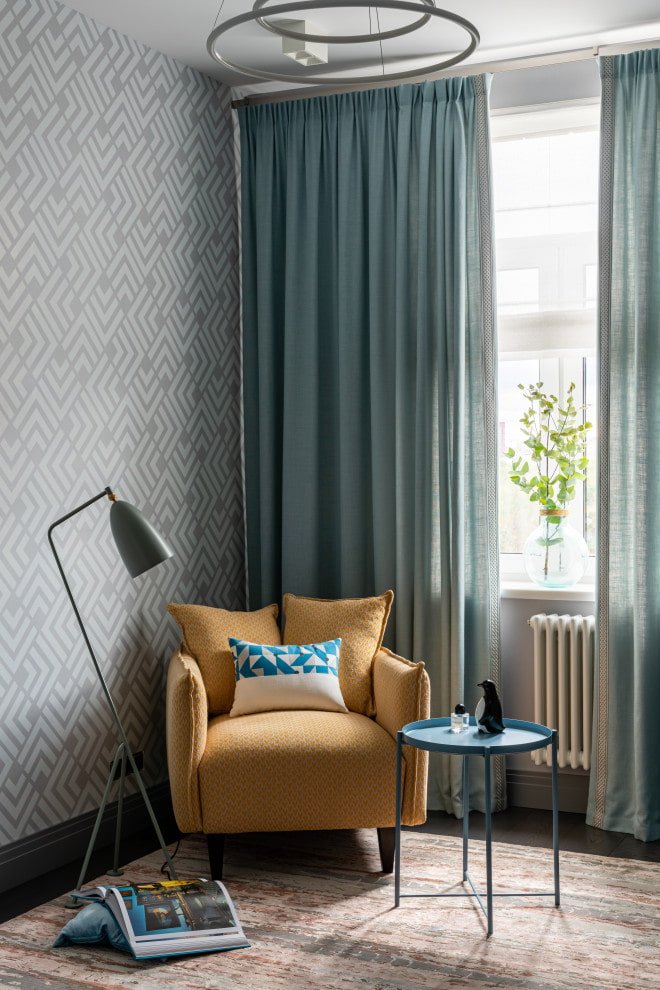
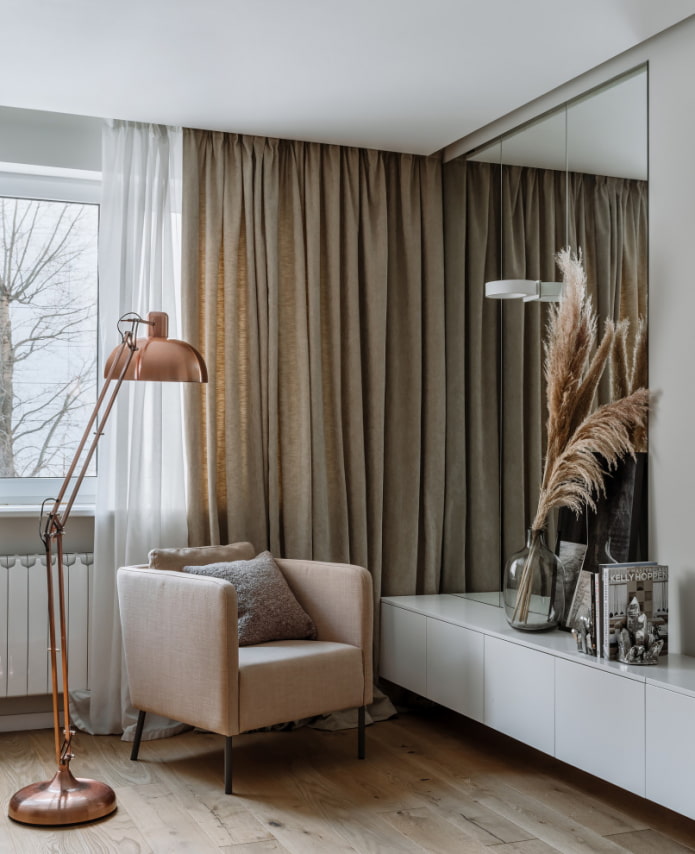
Matching the carpet
Another traditional combination is curtains plus a carpet. A complete repetition of two tones or individual elements of the print is allowed. The second option is preferable if the curtains are monochromatic and the carpet is full of a variety of patterns.
By combining large elements, you create a harmonious and well-thought-out space. If both the carpet and the window frame have a contrasting large pattern, it is better to replace one of the items to avoid visual noise.
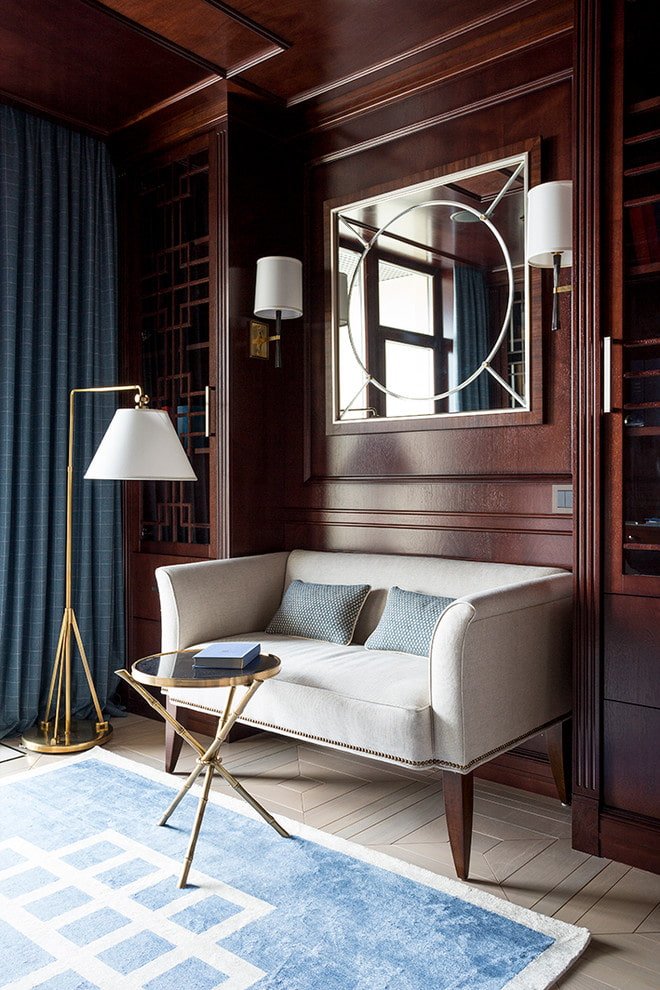
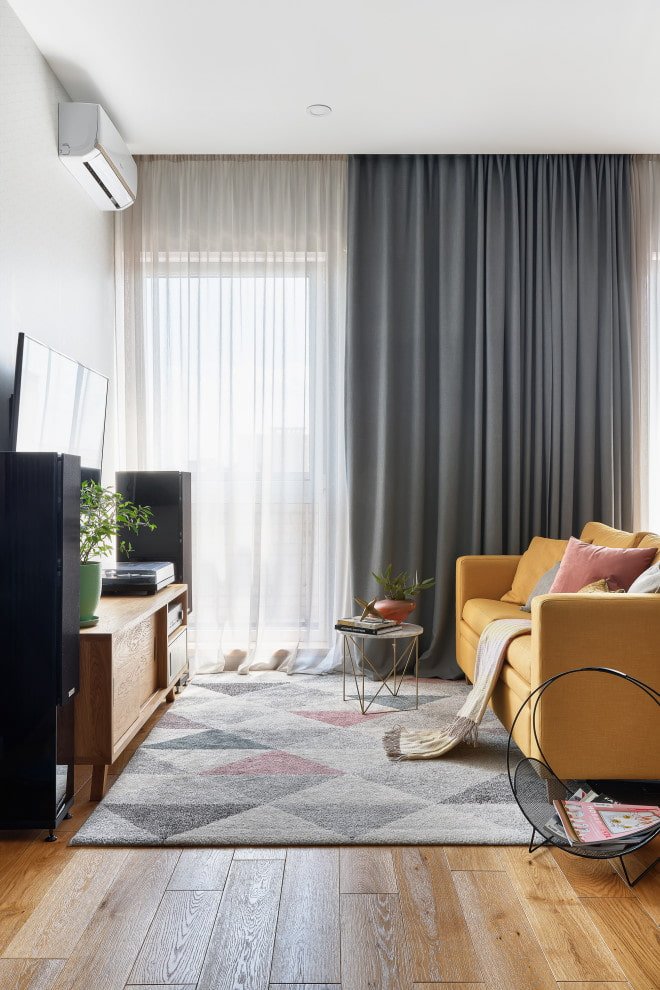
To suit your mood
Decorate the room in white or light gray tones to change the look of the room as you wish. In this case, all the furnishings should be neutral in color, and the curtains should contrast with them with their saturation.
A bright accent enlivens the decor: this technique is appropriate in a nursery, living room, and kitchen. In the bedroom, it is better to use pastel colors.
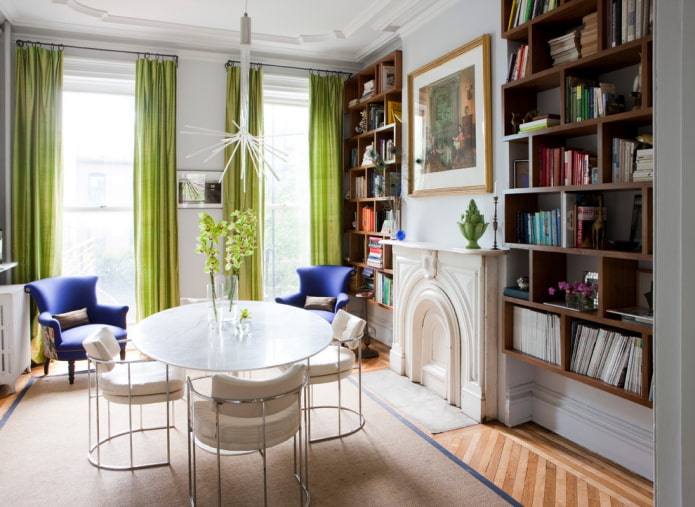
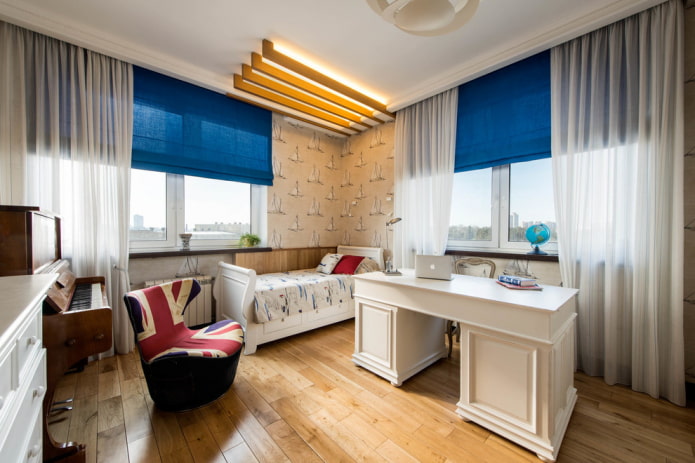
“Enveloping” strategy
Professionals call such interiors “boxes” – most of the elements in them are designed in one color. Monochrome rooms are very cozy, so this technique is ideal for decorating a bedroom.
If you want originality, decorate the interior in a dark or rich color, choosing curtains in the color of the walls, bedspread and carpet. A more discreet option is a room in beige or gray tones.
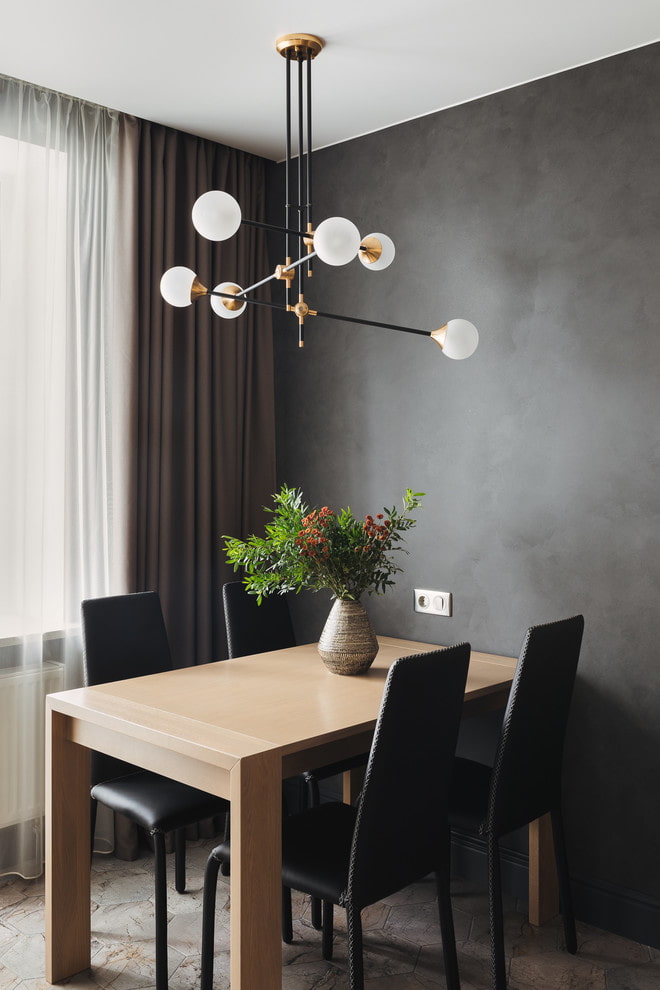
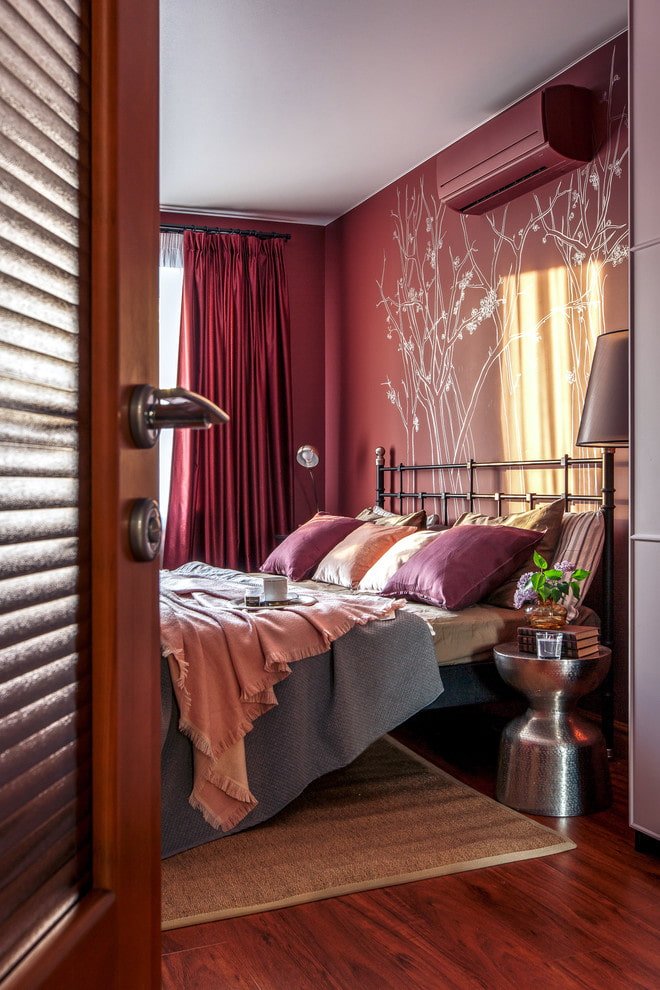
With the help of curtains and their successful combination with the surrounding environment, you can achieve truly spectacular results: make the interior lighter or darker, brighter or calmer, as well as stylish and thoughtful.
Now reading:
- Vinyl wallpaper for walls: how to choose, types and more than 50 interior photos
- Gray Wallpaper in the Interior: 101 Stylish Photos and Creative Design Ideas
- Sleek Kitchen Interiors: 30 Real Photos and Design Solutions
- Top 10 Garage Flooring Materials: Which One to Choose?
- Why are foundation vents necessary and should they be closed in winter?